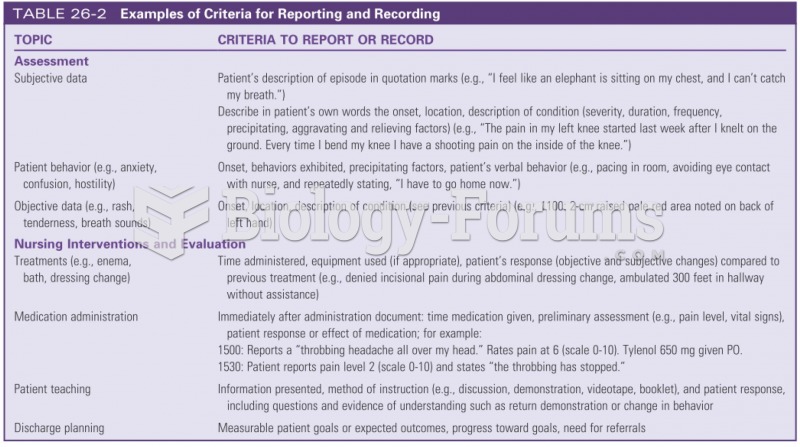Answer to Question 1
Correct Answer: 1,3,5,6
Rationale 1: Polit and Beck suggest that when formulating a research problem, significance (the potential to contribute to nursing science by enhancing client care) should be considered, along with researchability (the problem can be subjected to scientific investigation) and feasibility (the availability of time as well as material and human resources, space, money, etc.). Since researchers spend much time and energy while conducting a research project, it would also be important that they have genuine interest in the project. Confidentiality is one of the rights of the participant in research, and design focuses on how the research is done.
Rationale 2: Confidentiality is one of the rights of the participant in research.
Rationale 3: Polit and Beck suggest that when formulating a research problem, researchability (the problem can be subjected to scientific investigation) be considered.
Rationale 4:
Rationale 5: Polit and Beck suggest that when formulating a research problem, feasibility (the availability of time as well as material and human resources, space, money, etc.) be considered.
Rationale 6: Since researchers spend much time and energy while conducting a research project, it would also be important that they have genuine interest in the project.
Answer to Question 2
Correct Answer: 2,6,5,1,4,3
Rationale 1: In this step, the nurse determines what human, physical, and financial resources are needed to implement the change, how affected persons will be involved in the change process, and what methods will be used to document the change.
Rationale 2: In this step, the nurse identifies the source of data indicating that a change is called for, and determines which members of the healthcare team should be involved in the planned change.
Rationale 3: If the evaluation in step 5 indicates an improvement in outcomes, various activities might be needed to embed the change in practice for the future. Also, the change may be rolled out,' meaning that it begins in one segment of the practice setting and then is spread to other appropriate segments.
Rationale 4: If appropriate, a small test of the change can be done prior to broader implementation. After the change has gone into effect, outcome data are gathered and analyzed, and conclusions are drawn regarding effectiveness and next steps.
Rationale 5: The strengths of each piece of evidence are examined, as are the feasibility of implementing a change in a particular practice setting or population. The nurse determines whether any risks are outweighed by potential benefits.
Rationale 6: In addition to locating research reports, the nurse also gathers evidence from practice guidelines, standards of care/standards of practice, and literature reviews.







